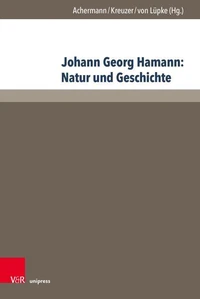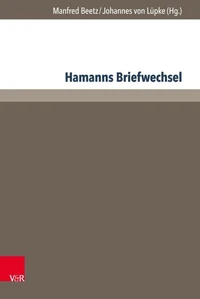Gottesgedanke Mensch. Anthropologie in theologischer Perspektive
Par :Formats :
Disponible dans votre compte client Decitre ou Furet du Nord dès validation de votre commande. Le format PDF est :
- Compatible avec une lecture sur My Vivlio (smartphone, tablette, ordinateur)
- Compatible avec une lecture sur liseuses Vivlio
- Pour les liseuses autres que Vivlio, vous devez utiliser le logiciel Adobe Digital Edition. Non compatible avec la lecture sur les liseuses Kindle, Remarkable et Sony
 , qui est-ce ?
, qui est-ce ?Notre partenaire de plateforme de lecture numérique où vous retrouverez l'ensemble de vos ebooks gratuitement
Pour en savoir plus sur nos ebooks, consultez notre aide en ligne ici
- Nombre de pages384
- FormatPDF
- ISBN978-3-374-04909-7
- EAN9783374049097
- Date de parution01/04/2018
- Protection num.Digital Watermarking
- Taille3 Mo
- Infos supplémentairespdf
- ÉditeurEvangelische Verlagsanstalt
Résumé
Was ist der Mensch? Theologische Antworten auf diese Grundfrage der Philosophie und Anthropologie stehen unter dem Vorzeichen, "dass Gott seiner gedenkt" (Psalm 8, 5). Als Gottesgedanke ist der Mensch wesentlich Sprachgeschöpf, angeredet und zur Antwort herausgefordert. In Freiheit soll er seine Bestimmung zur Menschlichkeit als Ebenbild Gottes verwirklichen. Die hier vorgelegten Studien zu einer theologischen Lehre vom Menschen nehmen biblische Grundtexte auf und lassen sich von Luthers Thesen über den Menschen anregen und leiten.
Von daher ergeben sich Antworten auf Streitfragen der aktuellen Diskussion, insbesondere zu den Fragen nach Anfang und Ende des Lebens, zum Verhältnis von Leib und Seele, Sprache und Vernunft sowie zum Verständnis der Freiheit. Im Zentrum steht eine Besinnung auf das Herz als Sitz der geistlichen Tugenden von Glaube, Liebe und Hoffnung. [The Human Person as God's Thought. Anthropology in Theological Perspective] "What is man"? Theological answers to this basic question of philosophy and anthropology have to consider that God is "mindful of him" (Psalm 8, 4).
As a thought of God the human person is essentially a creature of language, called and challenged to a response. Being free, he has to realize, as image of God, his vocation to be human. The present studies on a theological anthropology refer to basic biblical texts and are inspired and guided by Luther's anthropological views. This leads to answers to current controversial issues for instance regarding the questions of the beginning and end of life, the relation between body and soul, language and mind and the conception of freedom.
The central focus is on a reflection of the heart as seat of the spiritual virtues of faith, love and hope.
Von daher ergeben sich Antworten auf Streitfragen der aktuellen Diskussion, insbesondere zu den Fragen nach Anfang und Ende des Lebens, zum Verhältnis von Leib und Seele, Sprache und Vernunft sowie zum Verständnis der Freiheit. Im Zentrum steht eine Besinnung auf das Herz als Sitz der geistlichen Tugenden von Glaube, Liebe und Hoffnung. [The Human Person as God's Thought. Anthropology in Theological Perspective] "What is man"? Theological answers to this basic question of philosophy and anthropology have to consider that God is "mindful of him" (Psalm 8, 4).
As a thought of God the human person is essentially a creature of language, called and challenged to a response. Being free, he has to realize, as image of God, his vocation to be human. The present studies on a theological anthropology refer to basic biblical texts and are inspired and guided by Luther's anthropological views. This leads to answers to current controversial issues for instance regarding the questions of the beginning and end of life, the relation between body and soul, language and mind and the conception of freedom.
The central focus is on a reflection of the heart as seat of the spiritual virtues of faith, love and hope.
Was ist der Mensch? Theologische Antworten auf diese Grundfrage der Philosophie und Anthropologie stehen unter dem Vorzeichen, "dass Gott seiner gedenkt" (Psalm 8, 5). Als Gottesgedanke ist der Mensch wesentlich Sprachgeschöpf, angeredet und zur Antwort herausgefordert. In Freiheit soll er seine Bestimmung zur Menschlichkeit als Ebenbild Gottes verwirklichen. Die hier vorgelegten Studien zu einer theologischen Lehre vom Menschen nehmen biblische Grundtexte auf und lassen sich von Luthers Thesen über den Menschen anregen und leiten.
Von daher ergeben sich Antworten auf Streitfragen der aktuellen Diskussion, insbesondere zu den Fragen nach Anfang und Ende des Lebens, zum Verhältnis von Leib und Seele, Sprache und Vernunft sowie zum Verständnis der Freiheit. Im Zentrum steht eine Besinnung auf das Herz als Sitz der geistlichen Tugenden von Glaube, Liebe und Hoffnung. [The Human Person as God's Thought. Anthropology in Theological Perspective] "What is man"? Theological answers to this basic question of philosophy and anthropology have to consider that God is "mindful of him" (Psalm 8, 4).
As a thought of God the human person is essentially a creature of language, called and challenged to a response. Being free, he has to realize, as image of God, his vocation to be human. The present studies on a theological anthropology refer to basic biblical texts and are inspired and guided by Luther's anthropological views. This leads to answers to current controversial issues for instance regarding the questions of the beginning and end of life, the relation between body and soul, language and mind and the conception of freedom.
The central focus is on a reflection of the heart as seat of the spiritual virtues of faith, love and hope.
Von daher ergeben sich Antworten auf Streitfragen der aktuellen Diskussion, insbesondere zu den Fragen nach Anfang und Ende des Lebens, zum Verhältnis von Leib und Seele, Sprache und Vernunft sowie zum Verständnis der Freiheit. Im Zentrum steht eine Besinnung auf das Herz als Sitz der geistlichen Tugenden von Glaube, Liebe und Hoffnung. [The Human Person as God's Thought. Anthropology in Theological Perspective] "What is man"? Theological answers to this basic question of philosophy and anthropology have to consider that God is "mindful of him" (Psalm 8, 4).
As a thought of God the human person is essentially a creature of language, called and challenged to a response. Being free, he has to realize, as image of God, his vocation to be human. The present studies on a theological anthropology refer to basic biblical texts and are inspired and guided by Luther's anthropological views. This leads to answers to current controversial issues for instance regarding the questions of the beginning and end of life, the relation between body and soul, language and mind and the conception of freedom.
The central focus is on a reflection of the heart as seat of the spiritual virtues of faith, love and hope.



